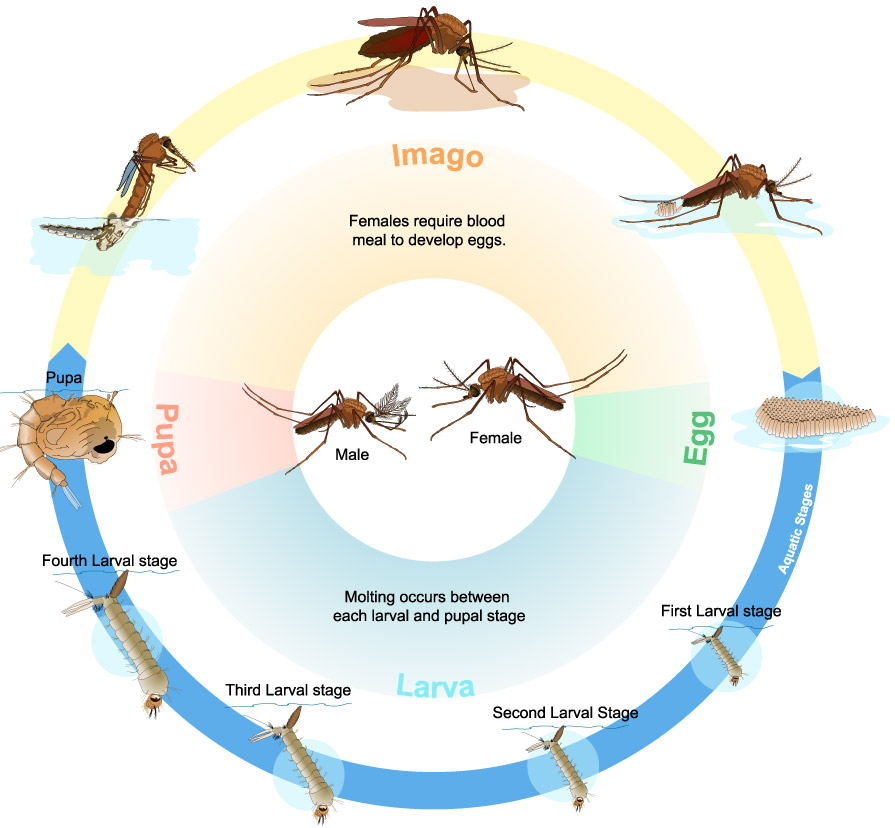Mosquito Life Cycle
Click on the main components of the life cycle of mosquitoes to learn more about each of the stages.

Click on the main components of the life cycle of mosquitoes to learn more about each of the stages.

Mosquitoes require water to reproduce and develop. A female mosquito will lay eggs in batches up to 100 eggs on the surface of the water, or along the walls of a water-filled container. Eggs that are deposited on a water surface cannot survive being dried out, and typically hatch with a couple of days. Other eggs, called floodwater eggs, can be laid on moist soils. These eggs require a period of drying out and will hatch once they are covered with water. Some eggs can survive the winter and hatch with the spring and summer rains.
Larvae are aquatic creatures, which feed on algae, bacteria and other microorganisms in the water. Out of water, mosquito larvae will not survive. Mosquitoes are cold-blooded, so they rely on external heat sources to warm their bodies. This means that their development is closely related to the temperature of both the air and water. The warmer the temperature (of the air and water), the faster the mosquitoes develop.
Just like the larvae stage, the pupae are aquatic and will not survive for long out of water. At this stage, the pupae do not do much but tumble around in the water. They are lighter than water and live at the surface. If the water is disturbed, they will sink, but will float back to the top once the water has calmed. It takes about four days (depending on the temperature of the water) to develop from the pupal stage into flying insects.
Adult mosquitoes mate within the first few days after they emerge from the pupal stage. The male mosquitoes only live about 5 days, while the female mosquitoes can live longer if environmental conditions (warm temperatures and moisture) are ideal. Mosquitoes stay close to where they initial hatched, but can fly spread up to five miles away. Mosquitoes are poor fliers, only traveling at a maximum speed of 1 mph, so they tend to fly low (within 25 feet) to the ground. Both adult male and female mosquitoes feed on nectar from flowers and fruit juices, but only female mosquitoes need blood.
Copyright © 2017. WeatherSTEM. All Rights Reserved.